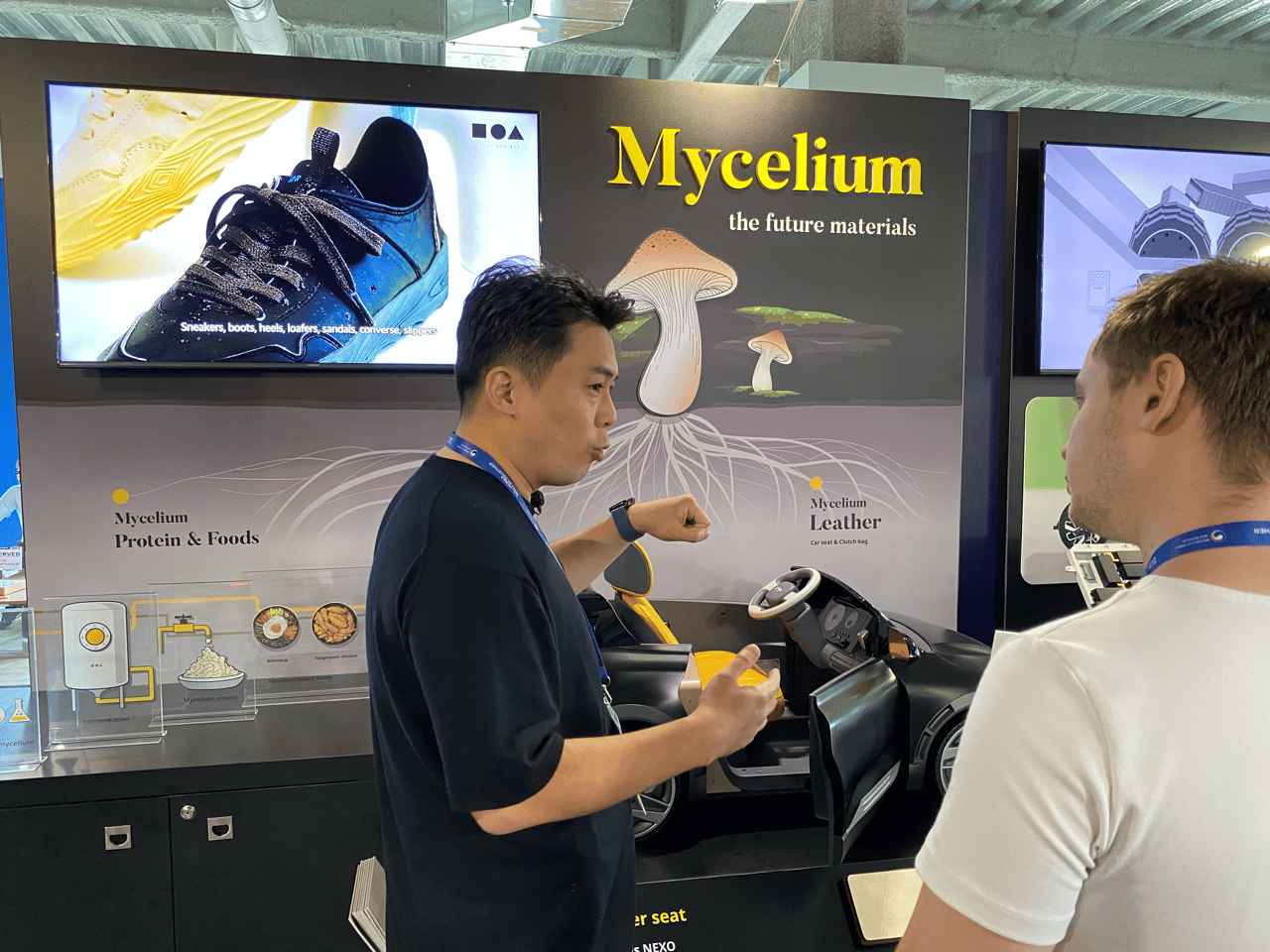Mycel attended the US-Korean Startup Summit held at Pier 17, New York, USA from Tuesday the 20th of September to Wednesday the 21st. Here, they were able to network with the New York IT community, also known as Silicon Alley, and present their sustainable innovations to the global market.

Mycel is durable like leather – And highly delectable
Mycel is an eco-friendly startup, previously partnered with Hyundai Motors, that uses mushrooms and fungi to make industrial and food materials like leather or protein-rich “meat” with the mycelium harvested from a bio process. It now focuses on improving research, developing its facilities and the cultivation of raw material.
A key advantage of the mycelium-based material, an industrial by-product, is the reduced amount of water and carbon emissions compared to animal-based materials and their processing.
The protein made from the fungi is appetizing as well as functional, with a pleasant texture, smell, and taste in comparison to soy vegetable protein. This is due to the long length and thickness of the mycelium fibers, which mimic the ones found in meat. As it has no odor and no color it is useful to a broad variety of culinary options.
The similarity to animal material does not end with taste, however. Mycelium leather possesses a similar durability and flexibility as regular leather, without the additional environmentally unfriendly and costly facilities involved in farming cattle, such as large farmlands and time. No added chemical products are needed to create the desired effect, as the fibers of the mushrooms intertwine among themselves, unlike existing vegan leathers that require added materials blended in during their pulverized state.
The Mycel Project was awarded the “Global Media Award” for its innovation and sustainability, as well as a variety of criteria, such as audience response and marketability, at the Korea-US Startup Summit.
The impact that this vegan alternative to animal material could have is significant. As a spokesperson for Mycel put it: “Cattle and other livestock which are the main sources of leather and protein are identified to be one of the biggest sources of environmental pollution. You need over half of the world’s land to raise livestock, and the greenhouse gases emitted by livestock makes up 15% of the world’s entire emissions.”
With due consideration of consumers wishes this innovation is also timely, as interest in animal rights and sustainability has been growing consistently over the past decades.
Possible future ventures include the development of a B2B, B2C or perhaps even a B2G business with Southeast Asian food companies, with the company stating an open approach to a variety of options to this end. Concerning the fashion sector, Mycel is looking to meet with global fashion brands to discuss the transition from natural and synthetic leathers to Mycelium.
